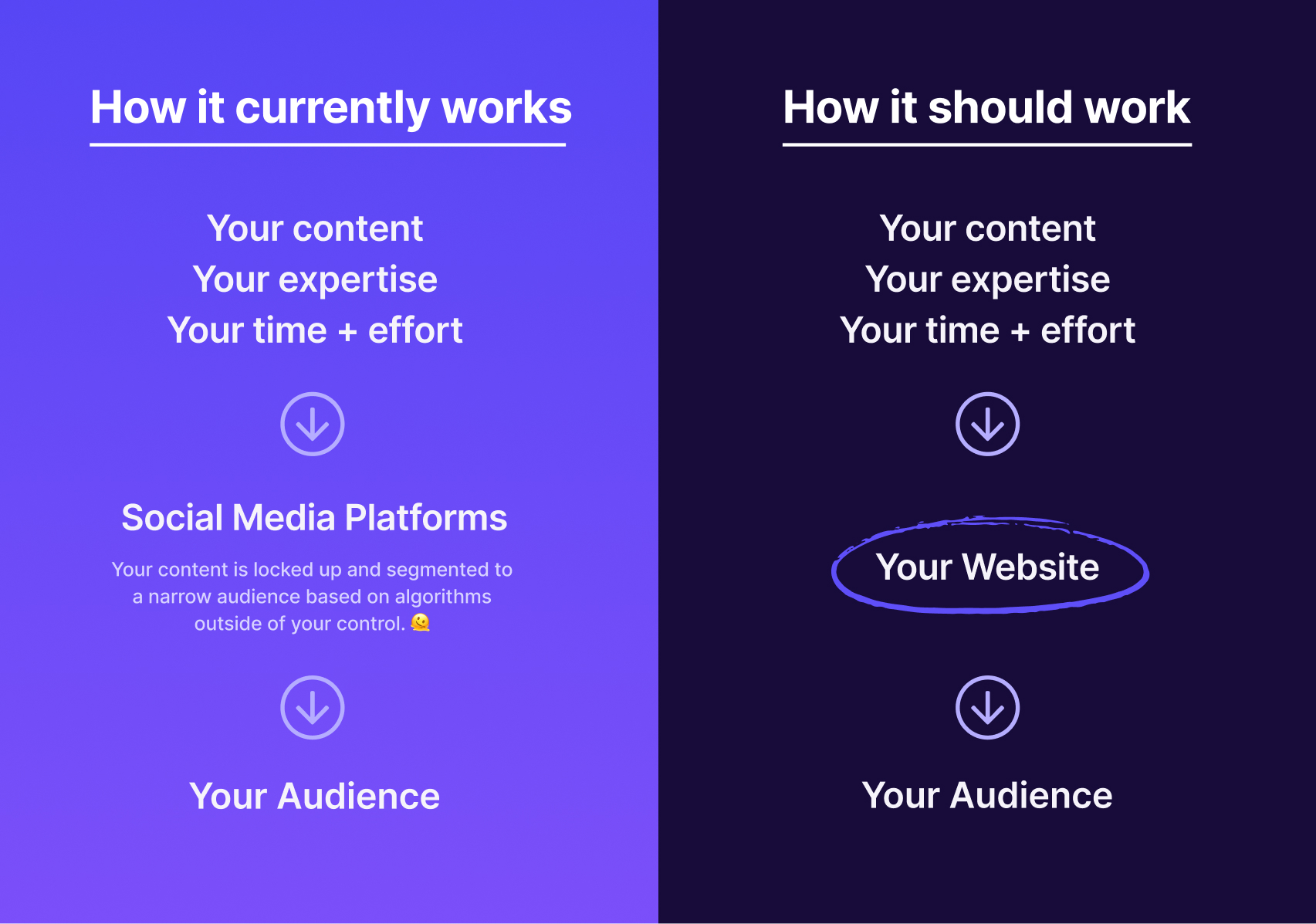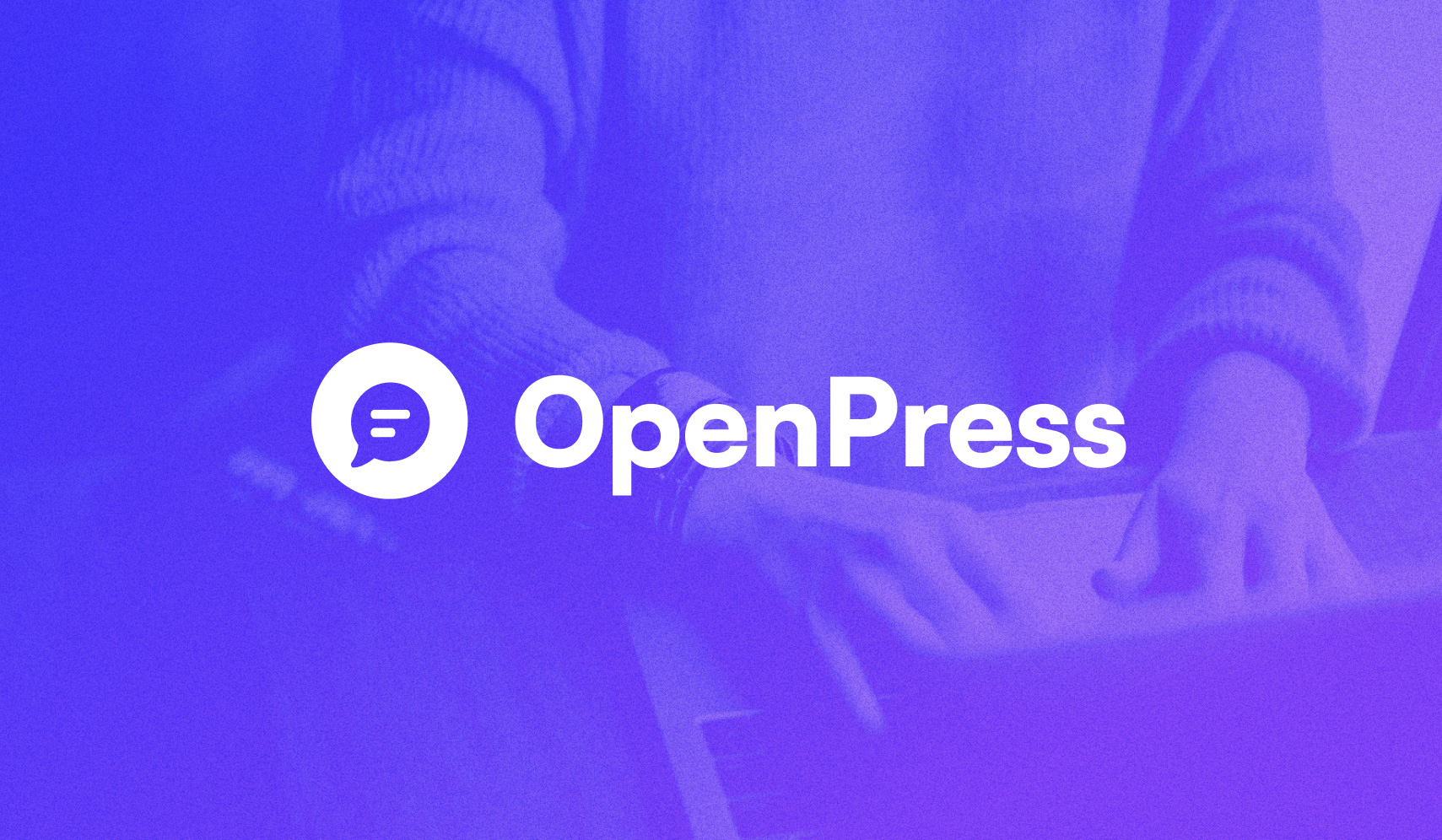Finding a new home for the WordPress community
The recent $44 billion dollar purchase of Twitter has a lot of people talking, to put it mildly. Some people are excited for a shakeup, seeing a lot of untapped potential in Twitter. Others are anxious, seeing the turbulence and uncertainty as a threat to the communities they’ve worked so hard to build over the years.
Like many folks, I’m in both camps. I really like Twitter. It’s the only social media I use, and it’s where my audience and community is. Twitter has the potential to evolve in some really innovative ways. Payments, curation, customization, less ads, more creator tools — these would all be a huge win for the platform.
But I’m also a fan of stability and thoughtful leadership in the platforms that I use. The mass firings (and clumsy re-hirings) that have happened at Twitter recently aren’t exactly confidence inducing. And the erratic nature of adding and removing features on a whim have already caused the platform’s ad revenue (roughly 90% of Twitter’s revenue) to tank. And now there’s talk of bankruptcy.
Even if Elon Musk turns Twitter around, his unorthodox billionaire-gone-wild management style may cost him a slowly-bleeding user base as he tries to find the right balance of features, free speech, and empathy.
Looking for alternatives
All of this combined has people in the WordPress community questioning what comes next. Twitter (probably) isn’t going anywhere overnight, but that doesn’t mean the WordPress community, which is very much a Twitter-based community, will continue to operate there.
In fact, scores of community members are already test driving alternatives like Mastadon and Tumblr in search of a new home for our diverse WordPress community. Neither feels like a great fit for me, but I applaud the attempt to secure a new home.
And even if we found a really good alternative, I would still suggest it’s time to rethink how how much time, effort, and content we’re dedicating to platforms that lock it up and deliver it via their own incentivized algorithms.
Our content, even if it’s only 280 characters, should be ours, and we should reap the rewards of the value it delivers.

All of this has me thinking: If we’re going to make a big migration to something new, how can we better future-proof our community from apps that may come and go over time? And how can we get back to owning our content by default, and renting it out to social media platforms we align with, instead of the other way around?
Before we scramble to another platform, let’s slow down and look at the most powerful content creation tool on the planet: WordPress.
WordPress as a Platform
Ok, I know some of this is going to sound crazy, but hear me out. 😅
Every day, we work in a powerhouse CMSCMS Content management software (CMS) is used for managing digital content, such as posts and pages, on websites. that has a mountain of powerful capabilities baked in. Block editorBlock editor The WordPress block editor is editing interface where you create content and layouts with blocks (paragraphs, images, columns, etc.)., posts, pages, taxonomies, comments, users, authentication, APIs, RSS, drafts, scheduling, post formats, and so much more. You can literally build anything with it.
Our content, even if it’s only 280 characters, should be ours, and we should reap the rewards of the value it delivers.
We create our websites with WordPress, we sell our goods with WordPress, we write content and market it with WordPress, we run businesses with WordPress, we learn about WordPress on other WordPress-powered websites. We’re all in on WordPress.
But then we go to social media platforms to write our short-form content and deliver our value to our audience. I get it — that’s where our audiences, our peers, and real-time conversations are. It’s difficult to even imagine an alternative.
But when it comes to our WordPress community in particular, I’m curious if we can decentralize our interactions and knowledge sharing using WordPress itself.
Over the course of a few days, I started to imagine what this would look like. How could we take all of this powerful technology and rewire it to be a new home of our WordPress community? This is a thought experiment and design concept I’m calling OpenPress.

An intro to OpenPress
Simply put, OpenPress adds functionality and an interface to your website that enables you to run your own micro publishing platform using readily-available WordPress technology.
Your website, and the content you’re publishing, can then be connected to a network of other websites that are also using OpenPress. The result is a network that is powered by individuals, but connected as a community.
This concept is framed around solving how the WordPress community, specifically, connects and shares content.
Instead of going to a platform like Twitter to write updates and share valuable content, you do it directly from your website. Your content remains yours, and can be shared and consumed within the WordPress community of OpenPress users. (This will be a familiar concept for those of you who know about the fediverse.)
Forget about the stack for now
In this initial post, I don’t want to go too deep on specific technology to make a concept like OpenPress work because there are a dozen different ways to achieve it within WordPress. (For what it’s worth, React, the REST API, RSS, ActivityPub, and the block editor can go a long way to achieve this.)
More importantly, technology wouldn’t be the barrier to making something like this work. The real barriers are on the macro level: feasibility, volunteers, adoption, and maintenance.
Let’s keep it high level for now and walk through a few screens I’ve designed to better understand how this might work.
The OpenPress interface
Every WordPress website that runs OpenPress gets a dedicated page where the OpenPress interface is displayed (e.g. yoursite.com/openpress). This interface provides a way for you to create and share content for your audience, and also to consume content from those you follow.
Your Profile page
Your Profile page displays a public feed of your “Updates”, which is short-form content like tweets. Followers can interact with your Updates by leaving comments or trackbacks.

Your Profile photo and bio are pulled in from your site’s WordPress profile area in the WordPress admin. You’ll continue to see this pattern: we’re leaning on as many existing WordPress features as possible to reduce the complexity and increase familiarity and feasibility.
Your Profile page displays Updates by default, but you can also opt to display your blog content here as well. This makes content discovery much more organic, keeping your short-form content and long-form content readily-available to your audience.
The Publish page
The Publish page is where you create your Updates. By pulling in block editor components for the content editor, we can provide a familiar, content-rich editing experience within this new interface.

Your Updates can be published immediately, scheduled, or saved as a draft to work on later. Sounding too complex? These features are already built into WordPress. 💥
The Update Feed page
The Update Feed is where you consume and interact with content from users you follow. You can comment on Updates from your followers, add reactions, and manage the accounts you follow here.

Notice there are no ads or other business-oriented decisions playing out in your feed. Your feed is yours, and free of junk. It only shows what you want it to show (in whatever order you want to see it).
The Content Feed page
The Content Feed is where you can browse long-form content from the accounts you follow. When they add new content to their blog, it shows up in your content feed.

This gives you a highly-curated feed to learn about the topics that are most important to you. It creates a separation between the minute-by-minute content that happens in Updates (which is valuable, but perhaps sometimes distracting) with a dedicated space to focus, learn, explore, and share content.
The Explore Feeds page
The Explore Feeds page is where you can find other sites and users who have connected to the OpenPress network. By providing a way to filter users, you can dig down to what interests you most.

This page gives you an opportunity to connect specifically with WordPress creators, educators, and leaders without having to wade through a bunch of Twitter accounts or lists to find them.
This also gives more exposure to new or underrepresented community members, giving them a chance to grow their network, find new opportunities, and connect with community members in a more meaningful way.
Because we’re focusing this on our community, we can shape the experience around our needs.
Starting the conversation
These things are tough, and I don’t claim to know every nuance about building something like this or the implications of doing so. This is just a (technology-informed) design concept, and hopefully kindling for a more in-depth discussion. There are tons of smarter people than myself who have started this work, and I hope to hear from them!
What would it look like to start connecting millions of websites, users, and content that power half of the web in a more purposeful and open way?
One thing I do know is WordPress, and I’ve long-thought that we may be underutilizing the sheer reach and capability that we have in our hands on a daily basis with the software. What would it look like to start connecting millions of websites, users, and content that power half of the web in a more purposeful and open way? It’s a fascinating proposition.
At the very least, I hope the OpenPress concept has provided a chance to look at what the next step could look like for our diverse and uniquely-valuable WordPress community.
Is it hopeful thinking? Is it just a glorified RSS feed? Is it so crazy that it might just work? Let me know what you think in the comments below or on Twitter (while it’s still a thing 😅).

 @todd
@todd @themolitor
@themolitor